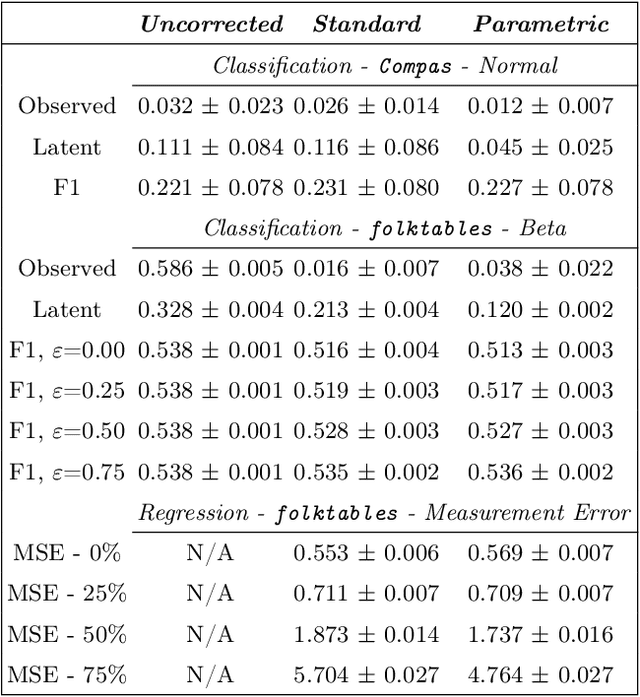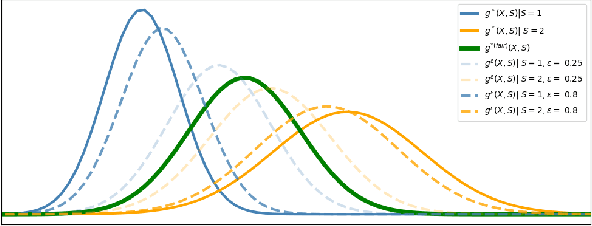François HU
Parametric Fairness with Statistical Guarantees
Oct 31, 2023



Abstract:Algorithmic fairness has gained prominence due to societal and regulatory concerns about biases in Machine Learning models. Common group fairness metrics like Equalized Odds for classification or Demographic Parity for both classification and regression are widely used and a host of computationally advantageous post-processing methods have been developed around them. However, these metrics often limit users from incorporating domain knowledge. Despite meeting traditional fairness criteria, they can obscure issues related to intersectional fairness and even replicate unwanted intra-group biases in the resulting fair solution. To avoid this narrow perspective, we extend the concept of Demographic Parity to incorporate distributional properties in the predictions, allowing expert knowledge to be used in the fair solution. We illustrate the use of this new metric through a practical example of wages, and develop a parametric method that efficiently addresses practical challenges like limited training data and constraints on total spending, offering a robust solution for real-life applications.
 Add to Chrome
Add to Chrome Add to Firefox
Add to Firefox Add to Edge
Add to Edge